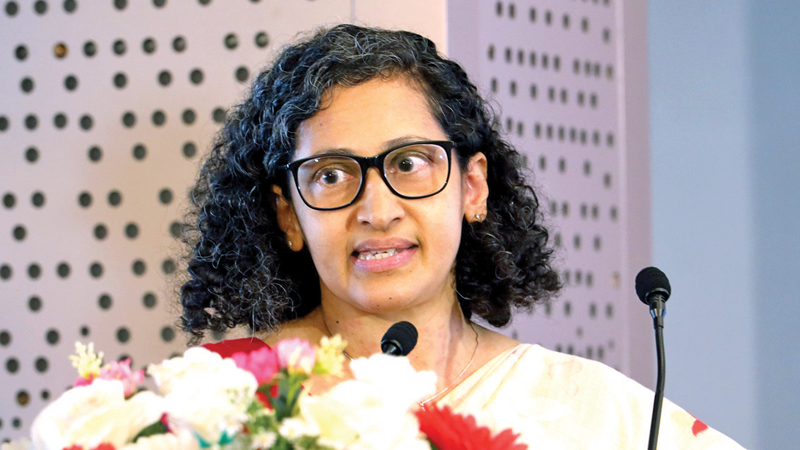Colombo University Medical Faculty Biochemistry and Molecular Biology Senior Prof. Pulani Lanerolle said that under-nutrition among children under five years has shown little improvement for over two decades in Sri Lanka,
She said that child under-nutrition increases the risk of Non Communicable Diseases (NCDs) in later life when exposed to poor quality, refined, processed foods. Referring to data from 2000-2022, she said that the prevalence of wasting (low weight for height) among children under five had increased from 15.5 percent in 2000 to 19.8 percent in 2022, while the prevalence of being underweight (low weight for age), which had been on a downward trend from 22.8 percent in 2000 to 17.5 percent in 2021, had risen again to 22.7 in 2022. Stunting (low height for age), which stood at 18.4 percent in 2000, had dropped to 13.7 percent in 2022.
Delivering the keynote address at the national event to mark ‘Nutrition Month’ in Battaramulla on Wednesday, Prof. Lanerolle outlined the need to increase fruit and vegetable intake to address nutritional gaps among children and adults.
‘National Nutrition Month 2025’, organised by the Health and Mass Media Ministry was launched on the theme “Vegetables and Fruits: Always Keep You Healthy”. Health Minister Dr. Nalinda Jayatissa and Ministry Secretary Dr. Anil Jasinghe were present.
Minister Jayatissa said, “Nutrition is not only a health concern but also a development cornerstone. It lies at the heart of human growth, productivity, cognitive development, disease prevention and quality of life. Though we have made commendable progress in health and human development, we still face nutritional challenges. This emphasises the urgent need for targeted and sustained national intervention. Our Government is committed to this end.”
Prof. Lanerolle said that the World Health Organization (WHO) recommends at least 400g of fruits and vegetables per day for adults. “In the past 28 years, other countries have increased fruit and vegetable consumption and also other healthful components, but not appreciably in South Asia, including Sri Lanka,” she said in reference to a study covering the period 1990 to 2018.
Pointing out that fruits and vegetables are rich sources of vitamins, minerals, antioxidants, phytochemicals, fibre and potassium, she said that increasing their intake is necessary to address the triple burden of malnutrition: under-nutrition, over-nutrition and micronutrient deficiencies.
In line with Nutrition Month, the Health Ministry is promoting the “Five-per-Day” habit, encouraging the public to consume at least five servings of fruits and vegetables daily, including two vegetables, one green leafy vegetable and two fruits.
Health authorities advise the public to minimise processing when preparing vegetables and fruits to preserve their nutritional value. They also encourage people to consume fruits and vegetables as healthy snacks instead of sugary, salty or oily snacks, and choose locally available, low-cost fruits and vegetables.
Health Ministry Additional Secretary, Public Health Services, Dr. Lakshmi Somatunga said that the Non-Communicable Disease Risk Factor Survey (STEPS, 2021) found that around 68 percent of adults aged 18 to 69 years consumed less than the recommended five servings of fruits and vegetables per day.
“Sri Lanka is a paradise when it comes to fruits and vegetables. There are 80 types of vegetables and 120 types of fruits in the country, but whether we reap the benefits of them is questionable,” she said, underlining the importance of making them more affordable to the people.
“Seasonal products provide a natural balance of nutrients and enhance dietary diversity of the diet. This food also plays a key role in reducing the risk of chronic NCD, such as cardiovascular disease, type 2 diabetes, and certain cancers, by protecting cells from oxidative damage. Their high fibre content aids in regulating blood sugar levels, promoting digestive health, and supporting weight management by increasing the feeling of fullness,” she added.







